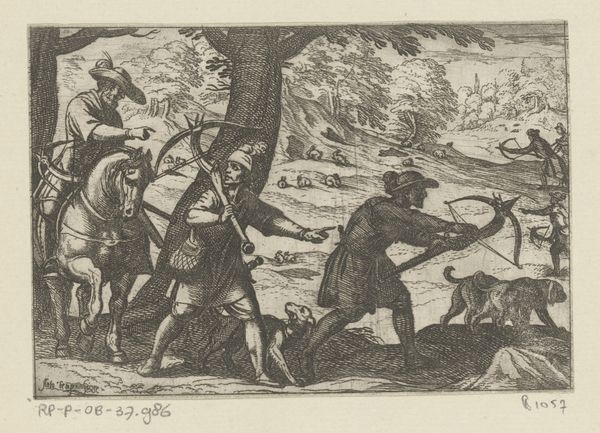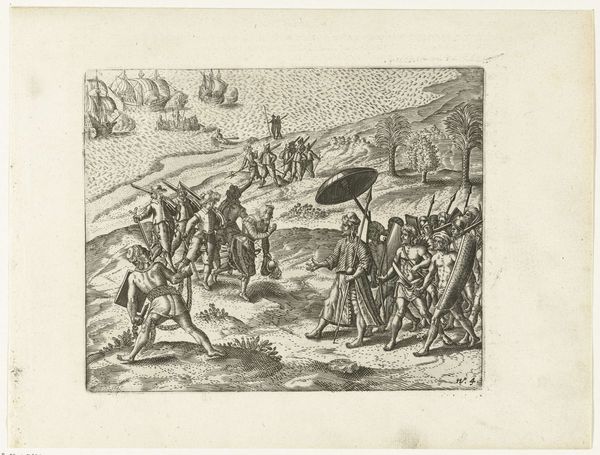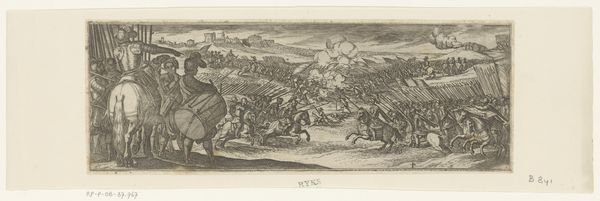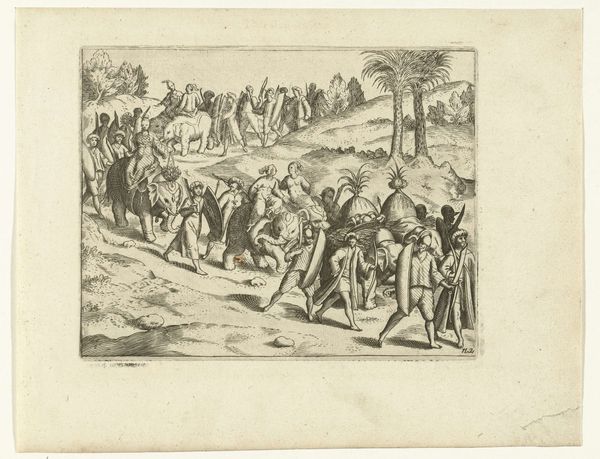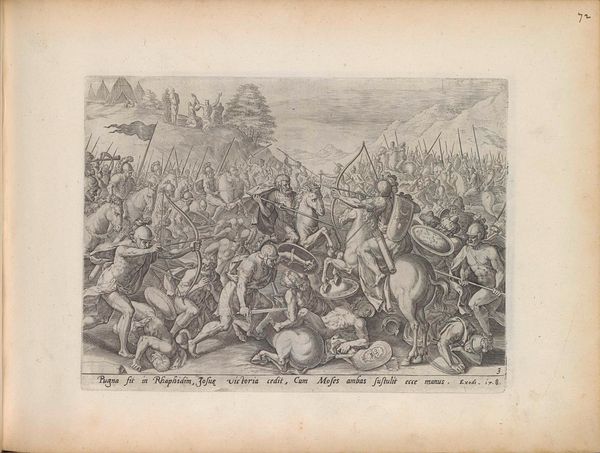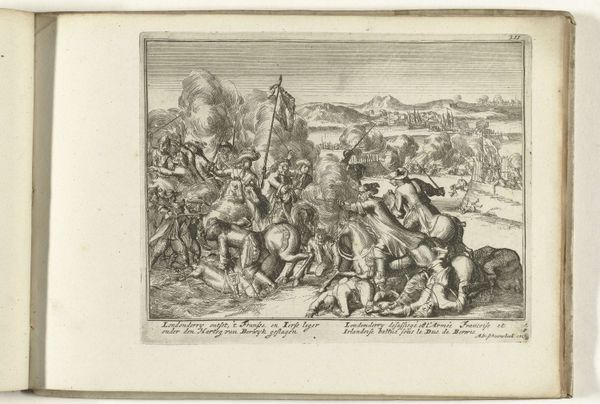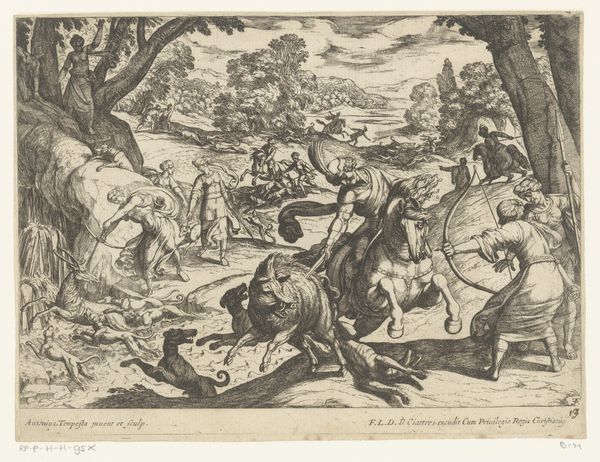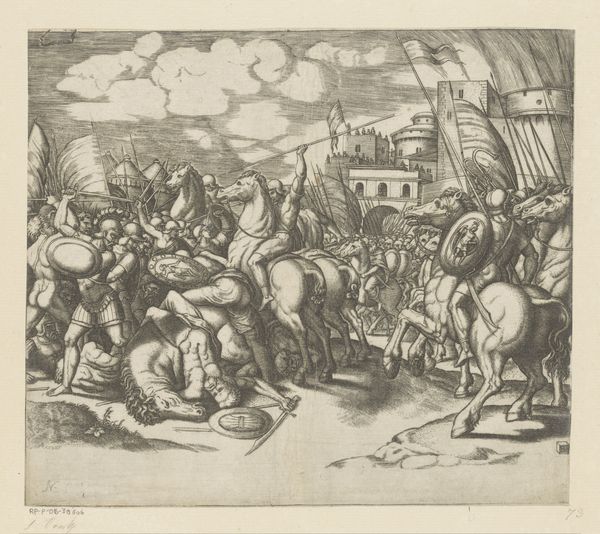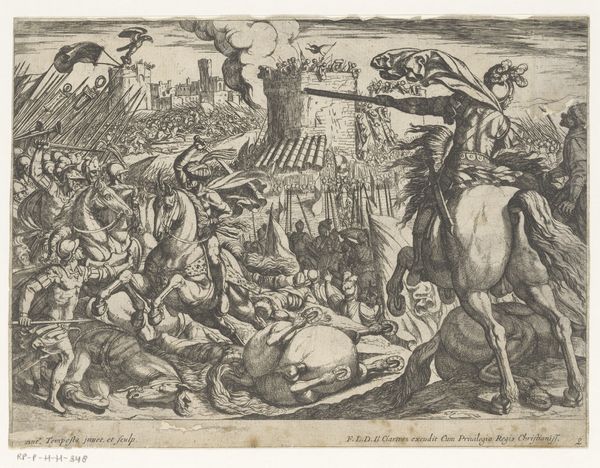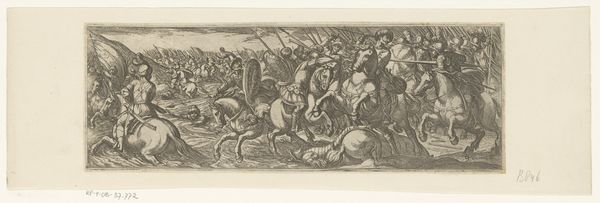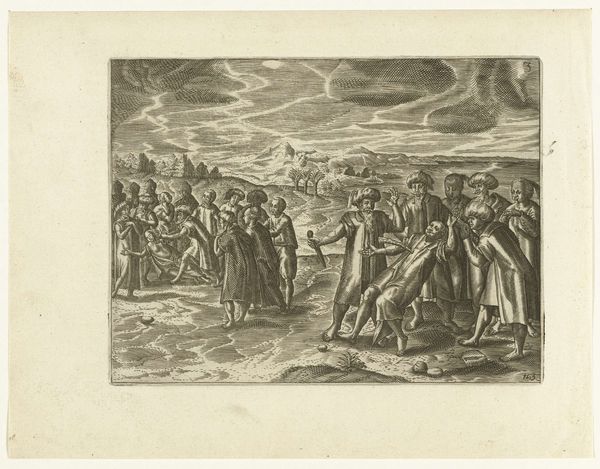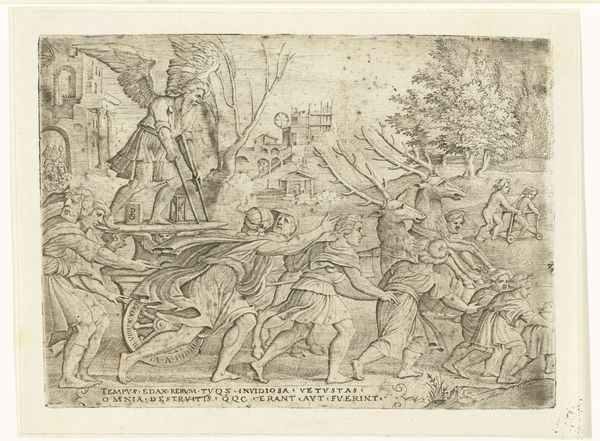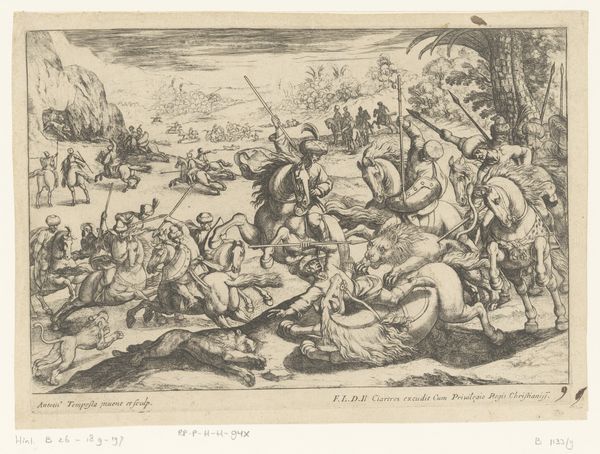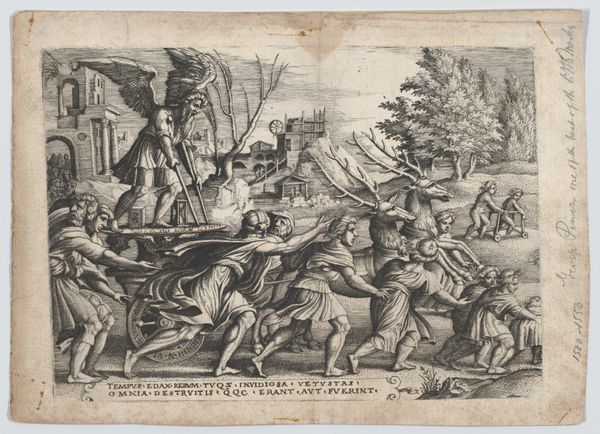
drawing, print, ink, engraving
#
drawing
#
narrative-art
#
dutch-golden-age
# print
#
pen sketch
#
landscape
#
mannerism
#
figuration
#
ink
#
cityscape
#
genre-painting
#
history-painting
#
early-renaissance
#
engraving
#
realism
Dimensions: height 135 mm, width 170 mm
Copyright: Rijks Museum: Open Domain
This anonymous engraving from 1603, now in the Rijksmuseum, depicts "The Murder of De Weert and his Men." The print presents a dramatic clash between Dutch sailors and indigenous people, offering a glimpse into the dynamics of early colonial encounters. Produced in the Netherlands during its Golden Age, the image reflects the country's burgeoning maritime power and its expanding global reach through the Dutch East India Company. The composition, with its clear distinction between the 'civilized' Europeans and the 'native' population, reinforces a colonial hierarchy. This visual coding speaks to the political motivations behind its creation. Was this image commissioned to boost national pride and justify colonial expansion? Perhaps it served as propaganda, shaping public opinion about the Dutch presence overseas. To truly understand this print, we need to delve into the archives, examining Dutch colonial records, travelogues, and ethnographic accounts. By studying the social and institutional context in which the work was made and circulated, we can begin to understand its meaning and appreciate its historical significance.
Comments
No comments
Be the first to comment and join the conversation on the ultimate creative platform.
